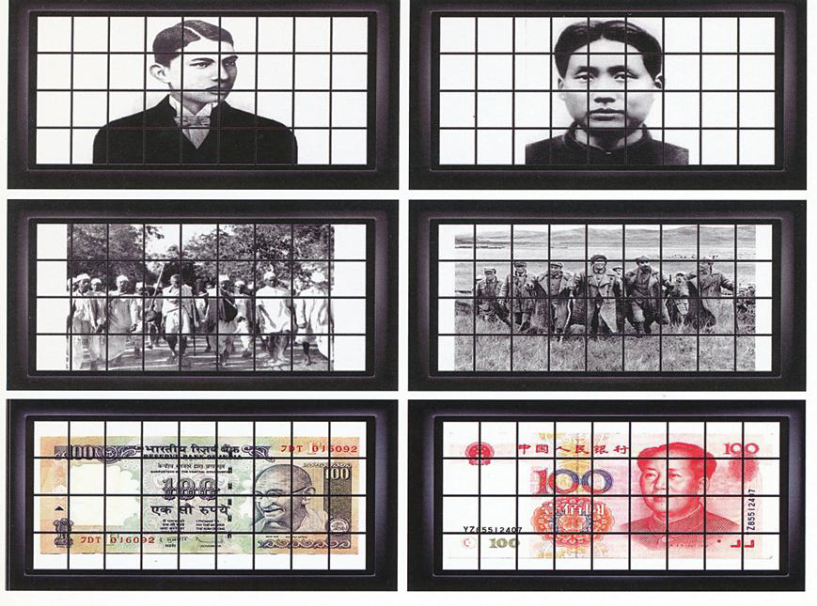China Research Seminar Series talk given by Prof. Barbara Mittler, Institute of Chinese Studies, University of Heidelberg
*** Please note the change of venue for this week's talk ***
The anchor for this presentation which stems from a joint research project on the Fatherly Bodies of Gandhi and Mao with the historian of India, Sumathi Ramaswamy, is Gigi Scaria's six-minute video installation No Parallel (2010). This art work audaciously juxtaposes a series of photographic images of Mohandas Karamchand Gandhi and Mao Zedong. What distinguishes Scaria's work, is the mobilization of a large archive of photographs, setting in motion several pairs of "parallel" narratives for these fatherly figures. What is the work done by the photograph as it is reused thus by a contemporary artist, and why does he resort to the photograph to do this work? These questions are important to ask given photography's much acclaimed "indexical," "evidentiary," and "truth-telling" capacity.
Indeed, the photograph has been taken as a metaphor for the "documentary." Yet, Scaria's work, by using parallel views of Gandhi and Mao, plays with this metaphor on several levels and thus opens up new possibilities for thinking them together. In looking beyond Scaria's work, reading it "in parallel" with other image archives and art works of Mao by Chinese and Indian artists, I ask what it means to recall and restage the iconic figure of Mao with the aid of the repurposed photographs. How are "familiar" narratives thus disrupted, disintegrated, and at the same time re-assembled and re-considered, and for whose benefit?

Barbara Mittler holds a Chair in Chinese Studies at the Institute of Chinese Studies, University of Heidelberg and is Director of the Heidelberg Center for Transcultural Studies. She began her studies of Sinology at the University of Oxford (MA Oxon 1990), and has spent research periods in Taiwan, the People's Republic of China, Hong Kong and at Harvard and Stanford Universities. Her PhD (1994) and her habilitation (post-doctoral thesis, 1998) are both from Heidelberg. Her research focuses on cultural production in (greater) China covering a wide range of topics from music to (visual) and (historical) print media in China's long modernity. She has published numerous research papers and books, including Dangerous Tunes: The Politics of Chinese Music in Hong Kong, Taiwan and the People's Republic of China since 1949 (Harrassowitz 1997), A Newspaper for China? Power, Identity and Change in China's News-Media, 1872-1912 (Harvard University Press, 2004), A Continuous Revolution: Making Sense of Cultural Revolution Culture (Harvard University Press, 2012). A joint book with historian Thomas Maissen has just come out, it is entitled Chronologics: Why China Did Not Have a Renaissance and Why That Matters—an Interdisciplinary Dialogue (De Gruyter 2018). She is finishing another book-length study on women's magazines, Portrait(s) of a Trope: Making New Women and New Men in Chinese Women's Magazines, 1898-2008 and is engaged in two more projects, a collaborative project with prize-winning (visual) historian Sumathi Ramaswamy (Duke) Embodying the Nation—Representations of Gandhi and Mao, and a monograph, "And there is only one Lang Lang..."—Chinese Musicians on the Global Stage: a Transcultural Perspective.
| Contact |
|---|
| Professor Hans van de Ven FBA: jjv10@cam.ac.uk |
